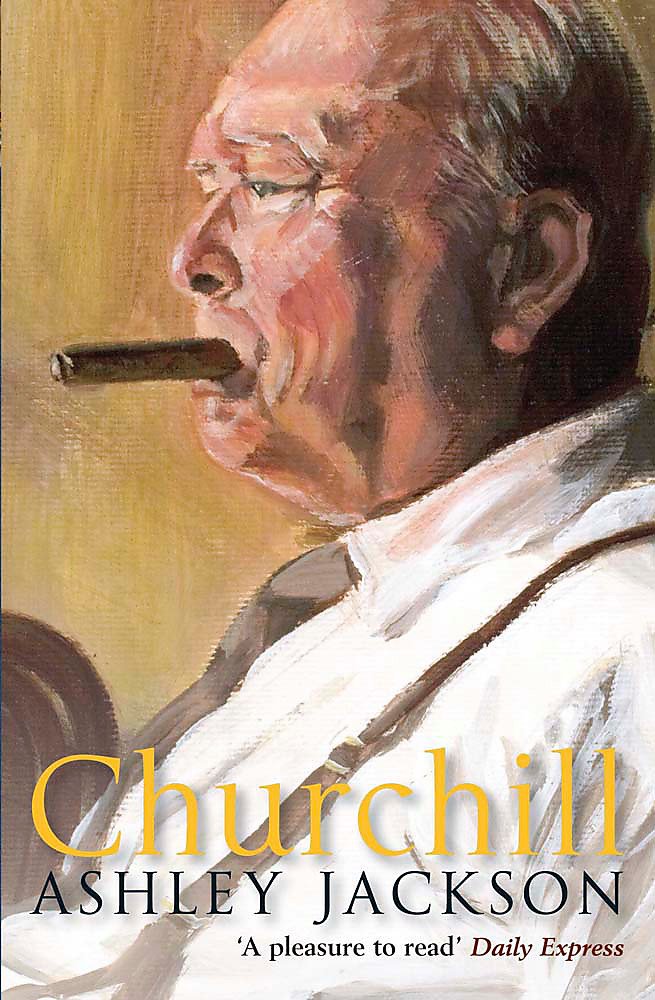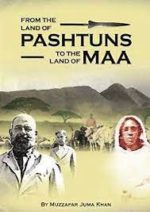In a much-acclaimed account, Jackson describes the contours and contradictions of a remarkable life and a career he describes as ‘Winston Churchill’s appointment with destiny’.
Churchill-by Ashley Jackson
KSh 700.00
In a much-acclaimed account, Jackson describes the contours and contradictions of a remarkable life and a career he describes as ‘Winston Churchill’s appointment with destiny’.
1 in stock
| SKU: | 9780857388346 |
|---|---|
| Categories: | Biographies & Memoirs, Historical Biographies, History books |
Related products
-
Violent Politics: A History of Insurgency, Terrorism, and Guerrilla War, from the American Revolution to Iraqer
KSh 1,500.00Guerrilla warfare is not just the tool of modern-day terrorists in the Middle East. Its roots stretch back to our very own revolution.
In Violent Politics, William R. Polk takes us on a concise, brilliant tour of insurgencies throughout history, beginning with America’s own struggle for independence. Continuing on, Polk explores the role of insurgency in other notable conflicts—including the Spanish guerrilla war against Napoleon, the Irish struggle for independence, the Algerian War of National Independence, and Vietnam—eventually landing at the ongoing campaigns in Afghanistan and Iraq, where the lessons of this history are needed more than ever.
-
Land, Migration and Belonging
KSh 14,560.00Tracing the history of the Basotho, a small mainly Christianised community of evangelists working for the Dutch Reformed Church, this book examines the challenges faced by minority ethnic groups in colonial Zimbabwe and how they tried to strike a balance between particularism and integration. Maintaining their own language and community farm, the Basotho used ownership of freehold land, religion and a shared history to sustain their identity. The author analyses the challenges they faced in purchasing land and in engaging with colonial administrators and missionaries, as well as the nature and impact of internal schisms within the community, and shows how their “unity in diversity”impacted on their struggles for belonging and shaped their lives. This detailed account of the experiences and strategies the Basotho deployed in interactions with the Dutch Reformed Church missionaries and colonial administrators as well as with their non-Sotho neighbours will contribute to wider debates about migration, identity and the politics of belonging, and to our understanding of African agency in the context of colonial and missionary encounters.
Published in association with the British Institute in Eastern Africa
-
Salamis : The Greatest Naval Battle of the Ancient World,
KSh 795.00“Salamis” tells the story of possibly the greatest naval battle of the ancient world. Involving hundreds of thousands of combatants and well over a thousand triremes – the ranking naval war engine of the time – it was the culminating battle in a twenty-year struggle between the Persian Empire and the Greeks. Against all odds – and with the help of a little treachery, a brilliant strategy and a lucky wind – the Greeks defeated the Persians, and with it began the roll-back of the Persian Empire, and the beginning of the Hellenic imperium. This epic tale is told through the individual stories of twelve characters, six form each side, each of which played a major role in the battle and its aftermath.
-
The Village of Waiting
KSh 995.00Now restored to print with a new Foreword by Philip Gourevitch and an Afterword by the author, The Village of Waiting is a frank, moving, and vivid account of contemporary life in West Africa. Stationed as a Peace Corps instructor in the village of Lavié (the name means “wait a little more”) in tiny and underdeveloped Togo, George Packer reveals his own schooling at the hands of an unforgettable array of townspeople―peasants, chiefs, charlatans, children, market women, cripples, crazies, and those who, having lost or given up much of their traditional identity and fastened their hopes on “development,” find themselves trapped between the familiar repetitions of rural life and the chafing monotony of waiting for change.
-
Women, Land and Justice in Tanzania (African Edition)
KSh 2,000.00Recent decades have seen a wave of land law reforms across Africa, in the context of a “land rush” and land-grabbing. But how has this been enacted on the ground and, in particular, how have women experienced this? This book seeksto re-orientate current debates on women’s land rights towards a focus on the law in action. Drawing on the author’s ethnographic research in the Arusha region of Tanzania, it explores how the country’s land law reforms have impacted on women’s legal claims to land. Centring on cases involving women litigants, the book considers the extent to which women are realising their interests in land through land courts and follows the progression of women’s claims to land – from their social origins through processes of dispute resolution to judgment.
Dancer’s work explores three central issues. First, it considers the nature of women’s claims to land in Tanzanian family contexts,the value of land in an era of land reform and the ‘land rush’ across Africa, and the extent to which the social issues raised are addressed by Tanzania’s current laws and legal system. Secondly, it examines how agency and power relations between social and legal actors engaged in legal processes affect women’s access to justice and the progression of claims. Thirdly, it explores Tanzanian concepts of justice and rights and how women’s claims have been judged by land courts in practice.Helen Dancer is a lecturer in Law at the University of Brighton. She practised as a barrister in England specialising in family legal aid cases prior to training as a legal anthropologist. She is also a consultant for Future Agricultures at IDS, University of Sussex. Her areas of research interest include law and development, gender and land, and human rights and legal pluralism.
-
River God (The Egyptian Novels)
KSh 400.00Ancient Egypt. Land of the Pharaohs. A kingdom built on gold. A legend shattered by greed…. Now the Valley of Kings lies ravaged by war, drained of its lifeblood, as weak men inherit the cherished crown. For Tanus, the fair-haired young lion of a warrior, the gods have decreed that he will lead Egypt’s army in a bold attempt to reunite the Kingdom’s shattered halves. But Tanus will have to defy the same gods to attain the reward they have forbidden him, an object more prized than battle’s glory: possession of the Lady Lostris, a rare beauty with skin the color of oiled cedar – destined for the adoration of a nation, and the love of one extraordinary man.
KSh 650.00 -
From the land of Pashtuns to the land of Maa
KSh 2,000.00From the Land of Pashtuns to the Land of Maa: Memoir (2013) Kenyan-born Khan traces his father’s journey from his village in India (now within Pakistan) to Kenya in 1929, alone, at the age of 18 after a family dispute.
Here is the story of migration, of Khan’s father and other Pashtuns (mainly from the Punjab Province of Pakistan), to the Maasai tribal lands in rural Kenya. His father, Juma Khan, raised 18 children from two wives: the first was a Maasai woman who assumed a Muslim name after marriage, and the second was the daughter of a Pakistani father and Maasai mother. It was a time of colonial rule when mixed marriages – and children from them – were regarded with discrimination.
-
The Dead Are Arising-the life of malcom x
KSh 2,195.00The Dead Are Arising is a penetrating and riveting work that affirms the centrality of Malcolm X to the African American freedom struggle and the story of the twentieth century. Renowned Pulitzer Prize-winning investigative journalist Les Payne paints vivid and dramatic scenes from start to finish, from Malcolm’s clandestine meeting with the KKK in 1961 to a minute-by-minute account of his murder in 1965, in which Payne reveals the complicity of the American government.Payne interviewed everyone he could find who had known Malcolm X in a nearly thirty-year-long quest – including siblings, classmates, friends, cellmates, FBI moles and cops, and political leaders. Conjuring a never-before-seen world of one of the twentieth century’s most compelling figures, this magisterial work sets his life not only within the political struggles of his day but also against the larger backdrop of American history










Be the first to review “Churchill-by Ashley Jackson”